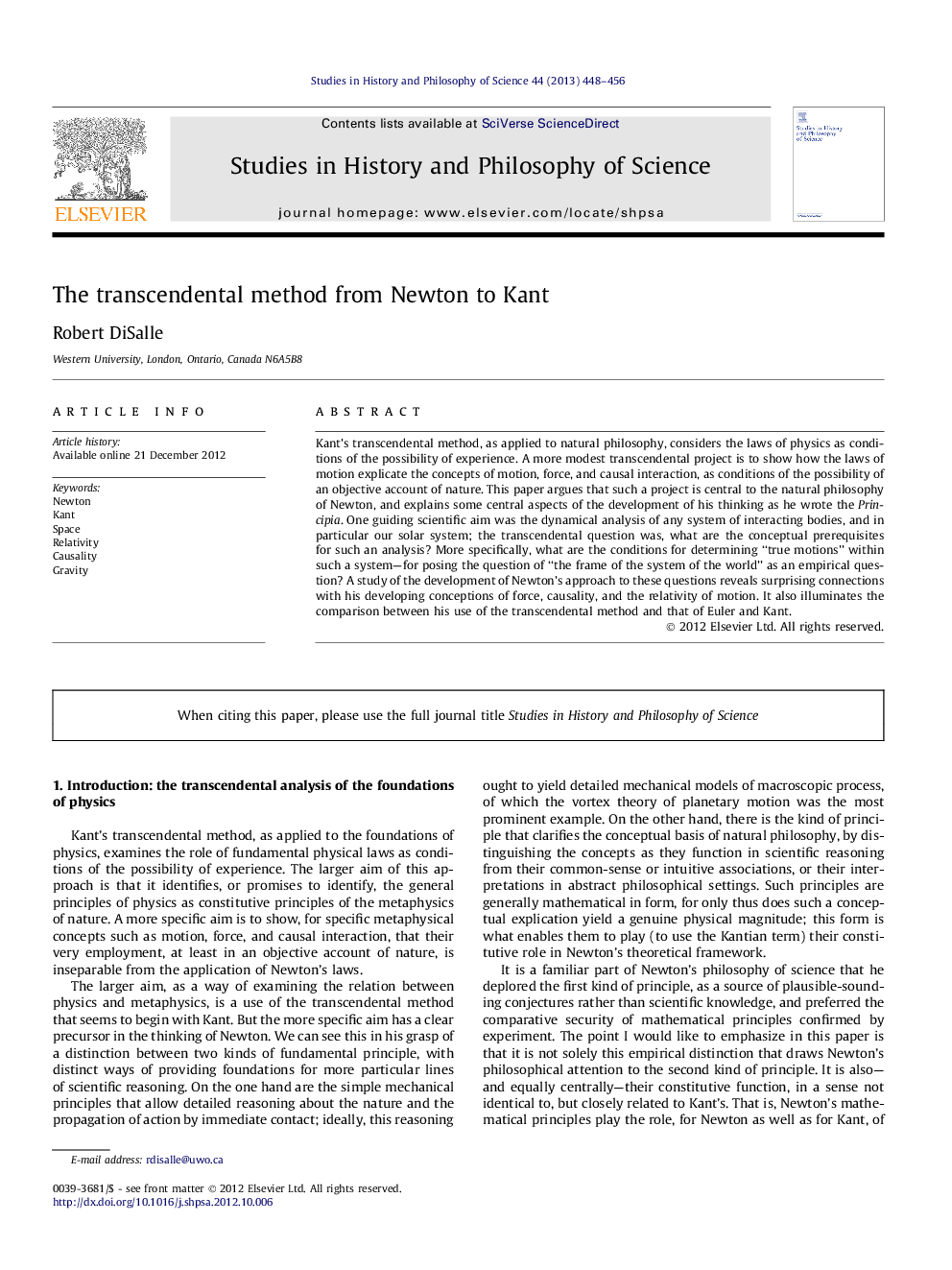| Article ID | Journal | Published Year | Pages | File Type |
|---|---|---|---|---|
| 1160466 | Studies in History and Philosophy of Science Part A | 2013 | 9 Pages |
Kant’s transcendental method, as applied to natural philosophy, considers the laws of physics as conditions of the possibility of experience. A more modest transcendental project is to show how the laws of motion explicate the concepts of motion, force, and causal interaction, as conditions of the possibility of an objective account of nature. This paper argues that such a project is central to the natural philosophy of Newton, and explains some central aspects of the development of his thinking as he wrote the Principia. One guiding scientific aim was the dynamical analysis of any system of interacting bodies, and in particular our solar system; the transcendental question was, what are the conceptual prerequisites for such an analysis? More specifically, what are the conditions for determining “true motions” within such a system—for posing the question of “the frame of the system of the world” as an empirical question? A study of the development of Newton’s approach to these questions reveals surprising connections with his developing conceptions of force, causality, and the relativity of motion. It also illuminates the comparison between his use of the transcendental method and that of Euler and Kant.
